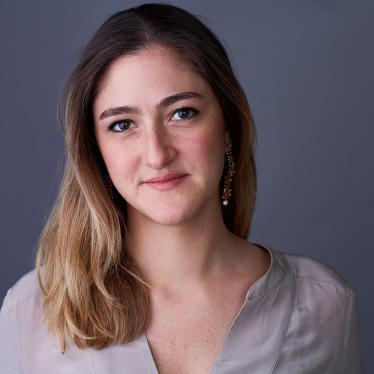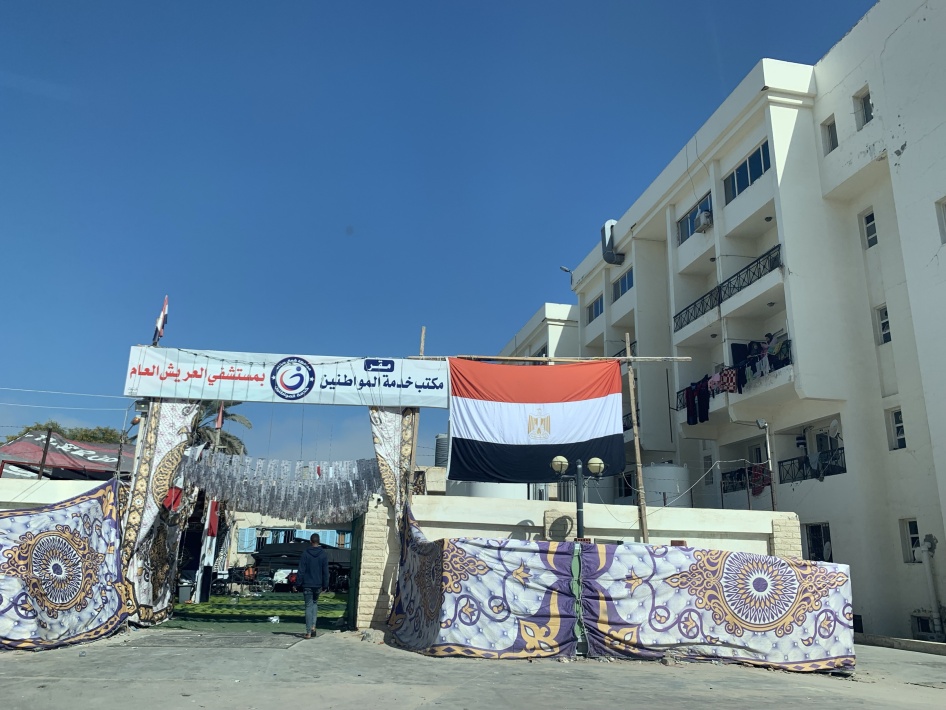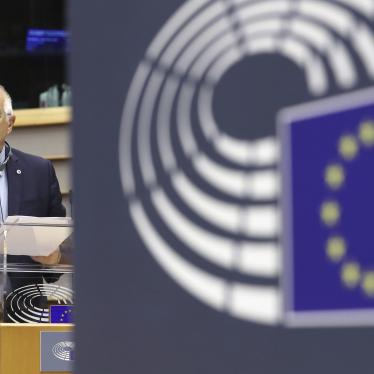Last month, I visited three hospitals in north Sinai in Egypt, a military zone that borders southern Gaza where scores of Palestinians are being treated. At Sheikh Zuweid hospital, I watched a woman from Gaza with stage four breast cancer plead with a visiting official to transfer her somewhere that could help her. She had spent weeks alone in a hospital bed, untreated and separated from her family.
I work for Human Rights Watch, documenting war crimes and crimes against humanity, and I was there interviewing people in need of critical care, including some who had survived Israeli attacks in the war. During Israel’s military campaign in Gaza, more than 36,000 Palestinians have been killed and over 81,000 have been injured, according to Gaza’s health ministry. At the same time, Gaza’s healthcare system has nearly collapsed: of its 36 hospitals, 32 have been damaged or raided, and just 16 are still functioning, with shortages of medication, equipment and staff.
Since October, about 4,000 patients have left through the Rafah crossing to access care in Egypt. This represents a fraction of those who need care: most of those allowed to cross have been cancer patients, according to a World Health Organization presentation shared with Human Rights Watch. Very few men between the ages of 18 and 60 have been granted permission to leave, regardless of their medical needs, according to the presentation.
Egypt’s healthcare system is strained, but it’s trying: more than 40 hospitals across the country are treating Palestinian patients. The Palestinians who have reached Egyptian hospitals are the lucky ones: on 7 May, Israeli forces closed the Rafah crossing, blocking all Palestinians from leaving Gaza to seek life-saving healthcare. Despite the international court of justice’s 24 May order to open it, those who remain will no longer be able to access care in Egypt.
The international community could be doing more – but so far, it hasn’t. While some foreign governments have tried to bolster medical assistance inside Gaza, only a handful have agreed to evacuate patients to hospitals in their own countries.
That has put pressure on the already overburdened Egyptian healthcare system. In one Egyptian hospital I visited, doctors told us that they were only treating people in the earlier stages of cancer, because they had so many Egyptians already waiting for cancer care before the new influx of patients arrived. Those with advanced cancer simply won’t get treatment while they’re in Egypt.
Stella Kyriakides, the EU’s health commissioner, and Janez Lenarčič, its crisis management commissioner, have called on EU member states to help evacuate Palestinians from Gaza who can’t get the care they need in Egypt. Otherwise, many more Palestinians will die for want of medical treatment. So far, these calls have gone largely unheeded.
Some countries have stepped up, but in most cases their efforts have been minimal. While the UAE, a hospital system of about 18,000 patients, has taken almost 1,000 Palestinian patients for treatment, the numbers of people evacuated by nations such as Oman, Algeria, Italy, Switzerland and the US have been in the dozens at most, according to international medical workers in Egypt.
France and Italy, meanwhile sent military ships to moor off the coast of Egypt and treat patients in November, but after a few months the ships left. Another ship sent by the UAE in February is still there.
States around the world have proclaimed their horror at the scale of civilian deaths in Gaza, and have the ability, through their own hospitals, to reduce it.
The situation in Palestine only compounds the need for UN member states to do more. The Israeli offensive on Rafah, a city that until recently was bursting with more than a million displaced people crammed in alongside lifelong residents, has already resulted in dozens of civilian casualties. The few functional hospitals left in southern Gaza are struggling to keep up. People with disabilities and chronic conditions have no or limited access to the treatments and medicines they need. Those wounded receive grossly inadequate medical treatment, sometimes undergoing surgery without anesthesia.
At the same time, aid workers, including medical staff, continue to come under Israeli attack, significantly affecting their ability to provide life-saving assistance. About 945,000 people have fled Rafah under Israeli evacuation orders since 6 May. Some of these civilians were reportedly killed by Israeli airstrikes - at least 45 died in an Israeli attack on Rafah on 26 May, according to Gaza’s health ministry. Many victims are said to have severe burn injuries, injuries that the Gazan healthcare system is no longer able to adequately treat. These victims will need treatment abroad.
Countries should use arms embargos, sanctions and support for justice and accountability to press the Israeli government to ensure that sufficient aid can get through to Gaza, including medical supplies. And Israeli authorities must be pressured to end unlawful attacks.
But for those countries calling for an end to the deaths of civilians in Gaza, notably countries such as the US, which continues arming and blocking international action on Israel, their calls cannot stop at Israel’s door. They also cannot only centre on aid.
One of the most meaningful ways to mitigate avoidable deaths would be to offer medical care to Palestinians who need it, ensuring their family members can accompany and stay with them and that none are forcibly returned to face the risk of further harm.
At Sheikh Zuweid hospital, a 10-year-old boy cornered me in the hallway and, unable to make eye contact, asked me if I could help bring his one-year-old brother and infant sister to Egypt. Realising I couldn’t help, he moved on, looking at the floor.
A nurse who heard him turned to me, almost in tears. He and so many other patients and their families are deeply traumatised and in need of psychological support. That is something the Egyptian healthcare system has very limited capacity to give, she said.
But many of the UN countries sounding the alarm over the brutal humanitarian cost of this war can provide that refuge for these families. Evacuating patients and providing proper medical care for them is a concrete and feasible humanitarian action that would help save the lives of Palestinians.








